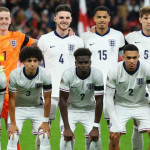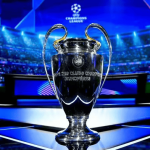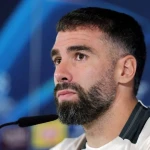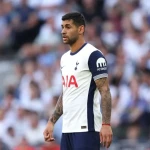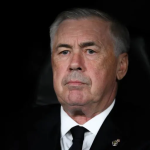During a ceremony in the opulent Grand Kremlin Palace, President Vladimir Putin embarked on his fifth term as Russia's leader, placing his hand on the Russian Constitution and vowing to uphold it, while a carefully selected group of dignitaries looked on.
"We are a united and great people, and together we will overcome all obstacles, realize all our plans, and together we will win," Putin declared after being sworn in.
Since taking over from President Boris Yeltsin in the final hours of 1999, Putin has transformed Russia from a nation recovering from economic turmoil into a pariah state that poses significant risks to global security. The 2022 invasion of Ukraine has escalated into Europe's largest conflict since World War II, leading to severe sanctions from the West and pushing Russia to seek alliances with other regimes like China, Iran, and North Korea for support.
Having been in office for nearly a quarter-century, Putin is the longest-serving Kremlin leader since Josef Stalin. His new term doesn't end until 2030, at which point he would be constitutionally eligible to run again.
In a carefully staged event, Putin was shown in his office reviewing documents before strolling through the Kremlin's long corridors. He paused briefly to examine a painting before heading to his inauguration. His guard of honor stood in the sleet and rain for hours, in near-freezing temperatures, while Putin made his brief journey to the Grand Kremlin Palace in his Aurus limousine.
In his first remarks of his new term, Putin praised the "heroes" of his war in Ukraine and criticized the West. Russia "does not refuse dialogue with Western states," he said, adding that "the choice is theirs: do they intend to continue trying to contain Russia, continue the policy of aggression, continuous pressure on our country for years, or look for a path to cooperation and peace."
Putin's entrance into the hall was met with applause from over 2,500 invited guests, including high-ranking members of the Russian government and celebrities such as American actor Steven Seagal.
Neither the U.S., U.K., nor German ambassadors attended Vladimir Putin's inauguration ceremony. The U.S. Embassy explained that Ambassador Lynne Tracy was absent due to "prescheduled, personal travel."
Although a few European Union envoys attended, top EU diplomat Josep Borrell had advised them not to, citing the International Criminal Court's arrest warrant for Putin, which accuses him of war crimes for his alleged role in the abduction of Ukrainian children. Despite this, the French ambassador was present, according to a French diplomat who spoke on the condition of anonymity.
Following Putin's remarks, a 30-gun salute was fired, and he reviewed the presidential regiment in the Kremlin's Cathedral Square amid light drizzle. He then entered the nearby Annunciation Cathedral for a blessing from Patriarch Kirill, the head of the Russian Orthodox Church. During the brief service, Kirill likened Putin to Prince Alexander Nevsky, a medieval ruler known for his battlefield courage. He reminded Putin that a head of state sometimes has to make "fateful and formidable decisions" that could lead to casualties, an apparent reference to the ongoing conflict in Ukraine, which the church has endorsed.
Questions remain about what Putin, now 71, will pursue over his next six years in the Kremlin, both domestically and internationally. Russian forces are making gains in Ukraine, employing scorched-earth tactics as Kyiv struggles with a shortage of manpower and ammunition. Ukraine, meanwhile, has been conducting drone and missile attacks on Russian soil, particularly in border regions. In a February speech, Putin reaffirmed his commitment to achieving Moscow's objectives in Ukraine and stressed the need to "defend our sovereignty and security of our citizens."
After his reelection in March, Putin hinted at a possible confrontation with NATO and expressed his desire to establish a buffer zone in Ukraine to protect against cross-border attacks. As part of his transition into his new term, the Russian government has been dissolved, allowing Putin to appoint a new prime minister and Cabinet.
A key area to watch is the Defense Ministry. Last month, Deputy Defense Minister Timur Ivanov—considered a protege of Defense Minister Sergei Shoigu—was detained on bribery charges amid allegations of widespread corruption. Some analysts speculate that Shoigu could be a casualty of the government reshuffle, but such a move would be bold given the ongoing war.
On the domestic front, Putin's popularity remains closely tied to improvements in living standards for ordinary Russians, adding another critical element to monitor as his new term unfolds.
Neither the U.S., U.K., nor German ambassadors attended Vladimir Putin's inauguration ceremony. The U.S. Embassy explained that Ambassador Lynne Tracy was absent due to "prescheduled, personal travel."
Despite a recommendation from the top EU diplomat Josep Borrell that it was inappropriate to attend due to Putin's arrest warrant from the International Criminal Court for war crimes—specifically, his alleged involvement in the abduction of Ukrainian children—some European Union envoys were present. Among those who did attend was the French ambassador, according to a French diplomat who requested anonymity as they weren't authorized to speak publicly.
After Putin's remarks, a 30-gun salute followed, and he reviewed the presidential regiment in the Kremlin’s Cathedral Square under light drizzle before entering the Annunciation Cathedral for a blessing from Patriarch Kirill, head of the Russian Orthodox Church. During the brief ceremony, Kirill compared Putin to Prince Alexander Nevsky, a medieval leader known for his battlefield valor.
Kirill also reminded Putin that leaders sometimes "have to take fateful and formidable decisions" that might result in casualties, an apparent reference to the many deaths in Ukraine, a conflict that the Russian Orthodox Church has endorsed.
The question now is what direction the 71-year-old Putin will take during his next six years in the Kremlin, both domestically and internationally. Russian forces are making gains in Ukraine, employing scorched-earth tactics, while Ukraine has retaliated with drone and missile strikes, particularly in border regions. In a February speech, Putin reaffirmed Moscow's objectives in Ukraine and his commitment to "defend our sovereignty and security of our citizens."
After his reelection in March, Putin hinted at a potential confrontation with NATO and suggested carving out a buffer zone in Ukraine to prevent cross-border attacks. With his new term, Putin has dissolved the Russian government to appoint a new prime minister and Cabinet.
A key area to watch is the Defense Ministry. Last month, Deputy Defense Minister Timur Ivanov, a protege of Defense Minister Sergei Shoigu, was detained on bribery charges, amid reports of widespread corruption. Some analysts suggest Shoigu could face consequences in the government reshuffle, though it would be a bold move given the ongoing conflict in Ukraine.
Domestically, Putin's popularity remains linked to improving living standards for ordinary Russians, creating additional pressure to deliver results during his new term in office.
Russia, she said, is “ruled by a liar, a thief and a murderer.”




